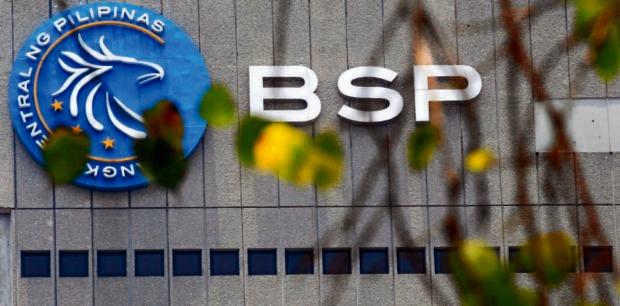
Bangko Sentral ng Pilipinas. (File photo / Philippine Daily Inquirer)
MANILA, Philippines–The Philippine financial system ended 2018 in the black as far as short-term investment flows are concerned — reversing the previous year’s net outflows — thanks to a P34-billion equity raising exercise of San Miguel Food and Beverage Inc. most of which were bought by foreign investors.
In a statement, the Bangko Sentral ng Pilipinas (BSP) said that registered foreign portfolio investments for 2018 yielded net inflows of $1.2 billion compared to the $195 million net outflows for the same period in the previous year.
The BSP attributed the surge in inflows of so-called “hot money” into the local financial markets “to a large investment in a holding company registered in 2018”. The inflows occurred in November 2018 which was when San Miguel Corp. listed its newly reorganized food and beverage group — formerly known as San Miguel Pure Foods Inc. — on the Philippine Stock Exchange (PSE).
Total portfolio investment inflows amounted to $16.03 billion, slightly lower by $38 million or 0.2 percent, than the $16.07 billion level in 2017.
On a monthly basis, the highest gross inflows were recorded in March ($2.5 billion) while the lowest was noted in September ($743 million). On a quarterly basis, the largest inflows were noted in the first quarter at $5.1 billion, representing 32 percent of the total for the year.
“This may be attributed to the large investment in a holding company registered [in 2018]
accompanied by investors’ optimism over the passage of the first phase of the
government’s tax reform program,” the central bank said.
Total outflows for the year amounting to $14.8 billion reflected an 8.8 percent decline compared to $16.3 billion in 2017. About 96.8 percent of total outflows represented capital repatriation with the remaining 3.2 percent pertaining to earnings.
Portfolio investments registered during the year were mainly in PSE-listed securities (71.4 percent). Peso-denominated government securities (20.2 percent), and other peso debt instruments (8.3 percent).
Transactions for the following instruments generated net inflows: peso debt instruments with $1.3 billion; peso-denominated government bonds with $1.2 billion; and peso time deposits with less than $1 million. For the year, $1.3 billion in net outflows were noted for PSE-listed securities.
The United Kingdom, the United States, Singapore, Netherlands and Hong Kong were the top five investor countries during the year, with combined share to total of 72.8 percent, while the US continued to be the main destination of outflows, receiving 78.8 percent of total. /jpv